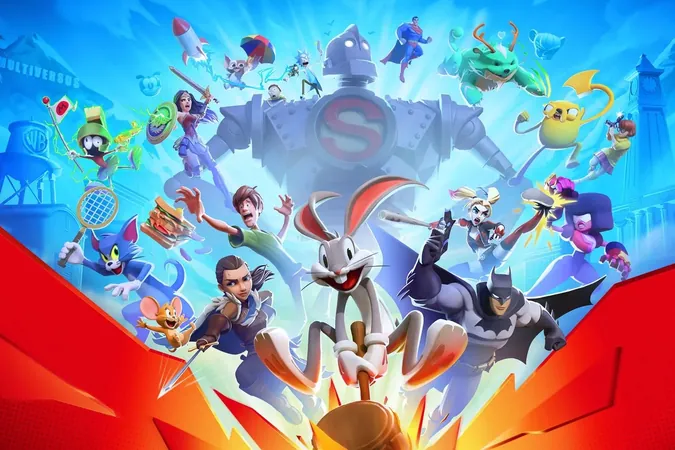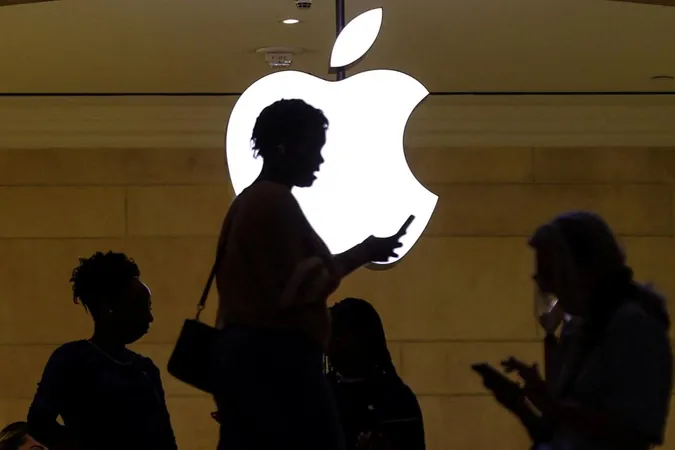
The Rise and Fall of MultiVersus: What Went Wrong with Warner Bros.' Ambitious Crossover Fighter?
2025-06-01
Author: Nur
This weekend marked a curious end for gaming aficionados: MultiVersus, the ambitious platform fighter featuring a plethora of Warner Bros. characters, has officially shut down. Intended to rival the beloved Super Smash Bros., the game had a promising debut but abruptly met its demise just a year after its grand relaunch.
While it may not be shocking in today’s gaming landscape, where multiplayer titles frequently face early shutdowns, the fall of MultiVersus raises critical questions. Within the past few years, several high-profile titles like Babylon's Fall, Crossfire X, and even WB's own Suicide Squad: Kill the Justice League have failed to capture players' imaginations and sustain their player bases. As for MultiVersus, the blame game is in full swing; some players criticize its monetization strategies, while others point to significant changes in gameplay between the open beta and its official 2024 release.
What Went Wrong? Diverse Roster or Lack of Strong IPs?
Some fans argue that the expansive roster was the main culprit behind its demise. Though Warner Bros. boasts a treasure trove of intellectual properties, the game aimed for a cast that could appeal to everyone. However, in this attempt to be all-inclusive, they ended up with a jumbled collection of A-listers like Batman and LeBron James, flanked by what some would classify as B or C-listers—think Gremlins and minor Adventure Time characters. Classic fighting game enthusiasts felt shortchanged, wishing for better representation of DC's heavy hitters and iconic Cartoon Network characters. Imagine the fan frenzy if characters like Flash or Ben 10 had been included!
The Crossover Effect: Is It Still Special?
Historically, character crossovers evoked a thrilling sense of surprise; they were rare and cherished events. Many who grew up in the '90s fondly recall the Jimmy/Timmy Power Hour or Kim Possible teaming up with Lilo & Stitch. In contrast, today’s relentless barrage of crossovers—from Batman and Marvel colliding in Fortnite to horror icons clashing in Mortal Kombat—dilutes the novelty. The excitement over crossovers has morphed into a marketing strategy, diminishing the wonder that once surrounded such encounters. Warner Bros. has capitalized on this shift, pushing boundaries to tie their IPs together, making it almost predictable.
Even titles like Call of Duty have succumbed to the trend, incorporating everything from Teenage Mutant Ninja Turtles to Squid Game soldiers as post-launch content. This saturation raises a critical question among gamers: Is there a tipping point where these crossovers feel excessive?



 Brasil (PT)
Brasil (PT)
 Canada (EN)
Canada (EN)
 Chile (ES)
Chile (ES)
 Česko (CS)
Česko (CS)
 대한민국 (KO)
대한민국 (KO)
 España (ES)
España (ES)
 France (FR)
France (FR)
 Hong Kong (EN)
Hong Kong (EN)
 Italia (IT)
Italia (IT)
 日本 (JA)
日本 (JA)
 Magyarország (HU)
Magyarország (HU)
 Norge (NO)
Norge (NO)
 Polska (PL)
Polska (PL)
 Schweiz (DE)
Schweiz (DE)
 Singapore (EN)
Singapore (EN)
 Sverige (SV)
Sverige (SV)
 Suomi (FI)
Suomi (FI)
 Türkiye (TR)
Türkiye (TR)
 الإمارات العربية المتحدة (AR)
الإمارات العربية المتحدة (AR)